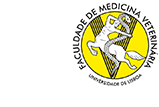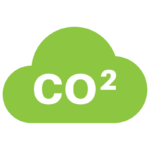Grass Roots Needs of European Beef Farmers Drive Selection of 2021 Priority Topics for EU-funded BovINE Network
2021-05-11
Beef farmers across Europe have been engaged with the BovINE network over the past year via national and international meetings, supported by exchanges with its national Network Managers (NMs), to express and share their needs for information, tools, and practical guidance to help secure sustainable improvements in their practice and business operations.
The result is the selection of eight new Priority Topics for BovINE to concentrate on during 2021, two for each of the four project thematic areas - Socio-economic Resilience, Animal Health & Welfare, Production Efficiency & Meat Quality and Environmental Sustainability. The four Technical Working Groups (TWGs) of the project – one for each of the Themes – led by researchers from leading agricultural research institutions will be supported by expert groups and NMs from Farmer Associations to identify existing literature, policy and practice recommendations, validated visual material, and on-farm good practices to produce solutions to these farmer-led grass roots needs.
Dr Richard Lynch, BovINE Project Manager from Teagasc and a farmer in Ireland confirms the important role of the project’s national NMs in identifying not only challenges but also ‘on farm’ and practical solutions: “Through their strong connections with European beef farmers, our NMs enable us to have an ‘ear to the ground’ helping us to identify the challenges these farmers are facing to achieve sustainability within their enterprises. The NMs extensive knowledge of the key actors within their regional networks, coupled with our four expert groups, ensures effective linkages between expertise and experience, enabling validated solutions to be brought forward.”
BovINE’s 2021 Priority Topics range from supporting beef farmers through significant market changes to environmental sustainability reward systems, and from calf vitality to identifying labour-saving tools to collect data on animal welfare standards. The four TWG leads explain the rationale behind the selection of the topics in their respective themes.
Kees De Roest, Centro Ricerche Produzioni Animali (CRPA) in Italy, lead for the Socio-economic resilience theme explains the selection of their two priority choices for 2021: “As with all types of meat, beef is suffering from a bad image related to its high carbon footprint and negative health connotations when consumed in excess. However, beef cattle as ruminants are able to exploit marginal areas and permanent grasslands that cannot be used for other crop production purposes. Beef needs to maintain its place in the market through communication campaigns, stressing not only its nutritive value but also the capacity to deliver eco-systems services.
The housing systems of beef cattle can be improved by implementing innovative equipment with the ability to save energy, water and labour. Renewable energy sources, such as solar energy, can be exploited and connected to electronic devices that administer feed to beef cattle. Feed can be prepared with full automatic equipment thereby reducing labour input and improving feeding efficiency. Knowledge of these innovative technologies and many others implemented in housing systems across Europe is beneficial to all beef farmers striving to maintain an economically sustainable beef production system.“
Leader of the Animal Health & Welfare theme, Dr.med.vet. Frank-Dieter Zerbe of the Friedrich-Loeffler-Institut, Germany explains the selection of their two priority choices for 2021:
“Tools that enable a standardised approach to animal inspections, allow comparability within and between farms by defining the way in which data is collected and communicated. Data and documentation standardized in this way also facilitates their use for possible certification and audit purposes.
Good daily weight gain is a sign of the absence of illness and stress, and is thus an indicator of a good Animal Health &Welfare (AHW) standard on farm. There is a demand for innovations that specifically target this win-win situation, not only from an economic point of view of the farmer but also for improving standards of animal welfare.”
Leader of the Production Efficiency & Beef Quality theme, Virginia C. Resconi of the University of Zaragoza, Spain explains the selection of their two priority choices for 2021: “Innovations related to the management of animal nutrition and reduction of stress that aim to produce tastier and healthier meat will be reviewed and shared. These innovations will also take into account respect for the animal and the environment, in order to address the needs of consumers.
Our second topic will help to identify problems and suggest solutions to accomplish or get close to the production of one healthy calf per cow per year, a measure directly linked with production efficiency in suckler beef herds and thus the profitability of such farms.“
Karen Goosens and Riet Desmet, joint leaders of the Environmental Sustainability theme both from ILVO -the Institute for Agricultural, Fisheries and Food Research, Belgium - explain the selection of their two priority choices for 2021: „Consumers are more concerned than ever about the production conditions of animal products such as beef, whilst both consumers and government also demand greater sustainability efforts. However, sustainability strategies often add costs for the farmer that cannot always be compensated by a higher product price. Labels, linked to reward systems for farmers who make sustainability efforts, can support and motivate farmers to invest in sustainability measures.
Carbon-sequestration, considered a mitigation strategy for climate warming, is a ‘hot topic’ across different agricultural systems including the beef cattle sector regarding what strategies to consider. We will define specifically for beef farmers how C can be sequestered better and the potential role of agroforestry in delivering solutions.“
In 2021, BovINE will test the research innovations identified in 2020 based on the original priority topics on Demonstration Farms, or with expert external practitioner groups as appropriate. In 2022 the project team will be validating the research innovations found to address the 2021 selected topics. The nine NMs will host national meetings in September/October - online and/or in person – where the current material on solutions will be shared for input from all stakeholders and further refinement, whilst a new round of discovery of grass roots needs will be initiated.
The BovINE transnational meeting in December 2021 will present to the whole European beef value chain the accumulated knowledge on this round of solutions, across all four themes, with all material uploaded and accessible on the BovINE Knowledge Hub (BKH) to all registered users.
Ends/Notes follow
Notes to Editors:
1. 2021 Priority Topics for each of the four BovINE Themes
|
BovINE Theme |
Priority Topic Titles |
Brief Descriptions |
|
Socio-economic Resilience
|
Initiatives to improve the image of and promote the sustainable consumption of beef |
Identify strategies that can improve consumer perception of beef e.g. short food supply chains, certification and sustainability labels and farm certification schemes. |
|
Economically efficient housing systems for beef cattle |
Identify efficient housing systems that reduce excessive handling of animals; reduce the level of stress on both the animal and the operator, and reduce energy & water consumption |
|
|
|
Simple labour-saving tools to measure and communicate high animal welfare standards on beef farms. |
Identify tools that allow fast and effective farmer inspections and on-farm assessments through mobile devices and/or paper exercises.
|
|
Management, housing, and environmental factors which affect animal welfare in rearing and finishing units |
Identify the influence of stressors such animal handling operations and antagonistic interactions between animals or access to resources on average daily weight gain and thus improve animal health and welfare |
|
|
Environmental Sustainability
|
Environmental sustainability reward schemes for beef farmers
|
Programas de apoio financeiro que recompensem os produtores pelos serviços ambientais fornecidos, como redução de carbono, preservação da biodiversidade e da qualidade da água dos solos e do ar. |
|
Carbon sequestration on beef farms
|
Identify methods used to improve carbon sequestration on beef farms such as grassland management techniques, simplified cropping techniques and the potential role of agroforestry. |
|
|
Production Efficiency & Meat Quality |
Impact of animal feeding and stress on meat quality |
Identify feeding and stress management strategies (on farm and during transport) that can alter meat quality, as perceived by consumers (appearance, eating quality, shelf-life, credence attributes) |
|
Optimizing the number of calves per cow per year in suckler beef herds |
Identify strategies (nutritional, health, animal and data management, genetics) to accomplish (or get close to) target production of one live calf per cow per year. |
Further detail about the Priority Topics is available on the BovINE website www.bovine.eu and on the Bovine Knowledge Hub (BKH) – www.bovine-hub.eu
2. Further information regarding the project including requests for interviews with the Theme Leaders, Project Manager, or other project team members, and/or audio-visual content (photos/videos) please contact Rhonda Smith & Marie Saville in the UK at bovine@minervacomms.net +44 (0) 1264 326427 / +44(0)7887-714957
3. BovINE has a Network Manager (NM) based in each of the 9 member states (Belgium, Estonia, France, Germany, Ireland, Italy, Poland, Portugal & Spain) building networks across their beef farming communities. Contact information for each NM can be found on the BovINE website:
http://www.bovine-eu.net/network-managers/
4. This Press Release and further information on the Priority Topics is available in nine further languages. Click on the flags on the Home Page of the BovINE website to access all translated materials of that country.
5. This project has received funding from the European Union’s Horizon 2020 rural renaissance programme. Project No: 862590 under call H2020-RUR-2019-15. Further information is available at https://cordis.europa.eu/project/id/862590
6. BovINE Project partners
|
No. * |
Participant organisation name |
Country |
Partner type |
|
1 |
Teagasc - Agriculture and Food Development Authority |
Ireland |
Applied research/ extension |
|
2 |
Feirmeoiri Aontuithe na h-Eireann Iontaobiathe Teoranta LBG |
Ireland |
Farmers association |
|
3 |
Centro Ricerche Produzioni Animali - C.R.P.A. s.p.a. |
Italy |
Applied research |
|
4 |
Unicarve - Associazione Produttori Carni Bovine |
Italy |
Farmers association |
|
5 |
Institut de l'Elevage |
France |
Applied research/advisory |
|
6 |
Fédération Nationale Bovine |
France |
Beef farmers association. |
|
7 |
Universidad de Zaragoza |
Spain |
Research |
|
8 |
Instituto Navarro de Tecnologias e Infraestructuras Agroalimentarias SA |
Spain |
Applied research/advisory |
|
9 |
Szkola Glowna Gospodarstwa Wiejskiego |
Poland |
Research |
|
10 |
Polish Beef Association |
Poland |
Beef farmers association |
|
11 |
Faculdade de Medicina Veterinaria |
Portugal |
Research |
|
12 |
ACBM- Associação de Criadores de Bovinos Mertolengos |
Portugal |
Beef breeders’ association |
|
13 |
Eigen Vermogen van het Instituut voor Landbouw- en Visserijonderzoek |
Belgium |
Applied research |
|
14 |
Boerenbond |
Belgium |
Farmers association |
|
15 |
Friedrich Loeffler Institut - Bundesforschungsinstitut fur Tiergesundheit |
Germany |
Research |
|
16 |
Bundesverband Rind und Schwein e.V |
Germany |
Farmers association |
|
17 |
Minerva HCC Ltd |
UK |
SME – communications |
|
18 |
NPO Liivimaa Lihaveis |
Estonia |
Non-Profit Organisation |
BovINE PR-03 – 29 April 2021





